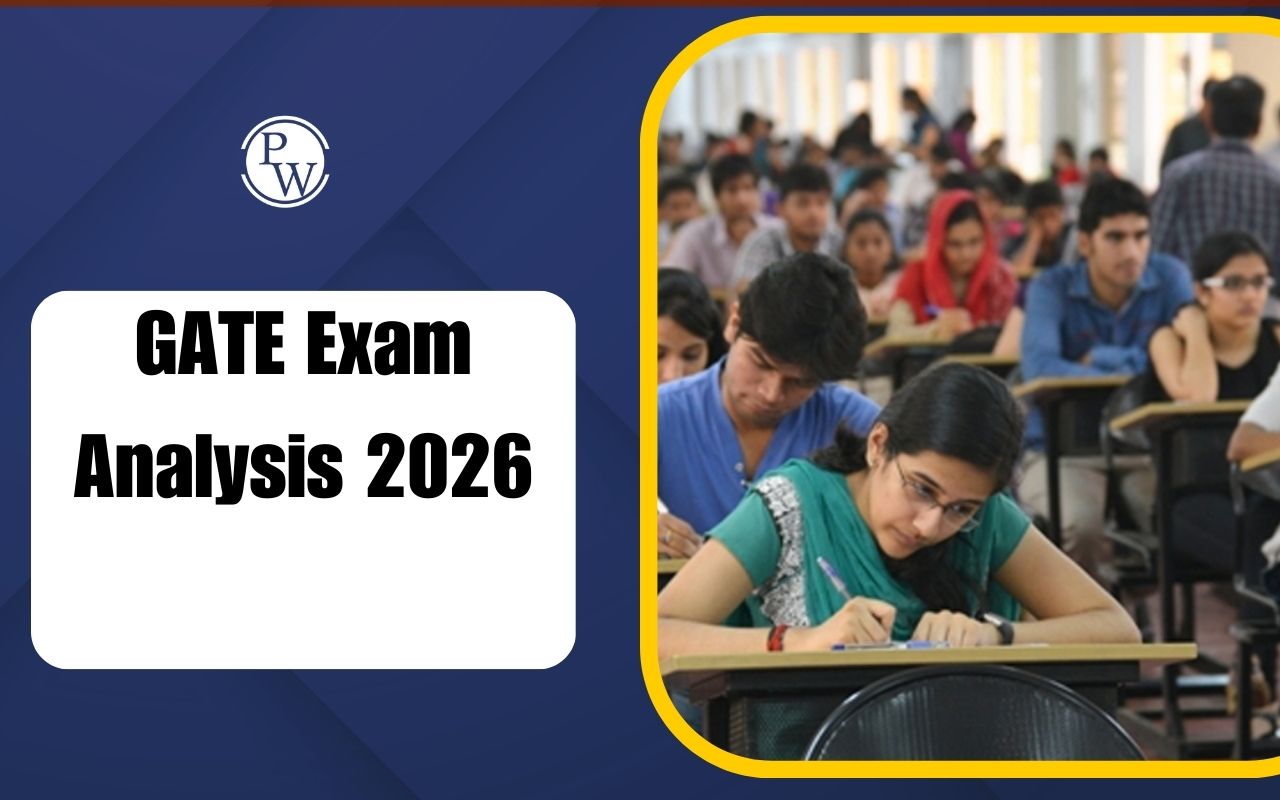
Structural Engineering is a specialized branch of Civil Engineering that is responsible for planning, evaluating, and supervising the construction of various structures such as buildings, bridges, and infrastructure. Structural engineers are responsible for ensuring that these structures are not only safe but also able to endure a variety of loads and environmental conditions. They are responsible for material selection, structural component design, and adherence to building codes and standards.
Continue reading to learn more about the Structural Engineering course, eligibility, syllabus, and other important aspects related to structural engineering.
What is Structural Engineering?
The Structural Engineering branch focuses on the precise design of man-made structures. Structural engineers, who are often compared to architects, must have a thorough understanding of elements such as stability, strength, and rigidity, which apply to a wide range of structures, whether they are buildings or non-building structures. This knowledge includes factors such as external forces and the capacity to withstand seismic activity.
What do Structural Engineers Do?
Structural Engineers are responsible for designing, analyzing, and overseeing the construction of buildings and infrastructure. They ensure structural safety by designing the framework and support systems, selecting appropriate materials, and analyzing the structure's performance under various conditions such as wind, earthquakes, and heavy loads.
Structural Engineers work involves compliance with building codes and standards, overseeing construction processes, collaborating with other professionals, and often integrating sustainable and innovative practices into their designs.
Why Opt for the Structural Engineering Course?
Structural engineering is an important area that supports the development of safe structures and environments. Millions of people are affected by structural engineers' work, which ranges from bridges to skyscrapers.
Furthermore, the construction industry is always expanding, providing huge job opportunities for students in this sector. Thus, pursuing a career in structural engineering is an ideal option for aspiring engineers because it not only contributes to the safety of society but also provides several prospects for personal and professional development.
Suggested Read: Computer Science Engineering, Know Eligibility Criteria, Top College Here
Structural Engineering Course Eligibility Criteria
As Structural Engineering is a sub-discipline within Civil Engineering , aspiring engineers can opt for this specialization at the master's level as part of their Civil Engineering studies.
- For undergraduate programs, students must have successfully completed their 10+2 class with subjects in Physics, Chemistry, and Mathematics (PCM).
- To meet the eligibility criteria for an M.Tech program in Structural Engineering, students need to possess a B. Tech or B.E degree in Civil Engineering with a minimum aggregate score of 60% or higher. For admission into IITs, clearing the GATE examination is necessary.
Also read: Civil Engineering GATE
Structural Engineering Entrance Exams
Aspiring students looking to enter the field of Structural Engineering, whether for undergraduate programs like B.Tech or B.E. or for postgraduate options such as M.Tech, often require entrance examinations as an essential requirement for admission. Some of the top Structural Engineering entrance exams are outlined below.
- GATE (Graduate Aptitude Test in Engineering): A national-level examination for admission to postgraduate engineering programs, including M.Tech. in Structural Engineering
Also Check: GATE 2024 Registration
- JEECUP: The Joint Entrance Examination Council of Uttar Pradesh for admission to polytechnic courses, which can be a starting point for a career in structural engineering.
- UPESEAT: The University of Petroleum and Energy Studies Engineering Aptitude Test is relevant for those interested in energy and infrastructure, including structural engineering.
- BVP CET: The Bharati Vidyapeeth Deemed University Common Entrance Test, which offers engineering programs including civil engineering, a related field to structural engineering
- TNEA: The Tamil Nadu Engineering Admissions for undergraduate engineering programs, where students can eventually specialize in structural engineering.
- SAAT: Siksha 'O' Anusandhan University Admission Test, an entrance exam for various engineering programs, including structural engineering
- SRMJEEE: SRM Joint Engineering Entrance Examination for admission to engineering programs, which may include structural engineering
- CGPET: The Chhattisgarh Pre Engineering Test, which offers opportunities for undergraduate engineering studies, including structural engineering
- BITSAT: The Birla Institute of Technology and Science Admission Test for entry into various engineering programs, potentially leading to structural engineering specializations
- JEE Advanced: The advanced stage of the Joint Entrance Examination for admission to prestigious engineering institutions like IITs, offering advanced courses including structural engineering
Also Read: GATE Civil Engineering Previous Year Question Papers PDF
Structural Engineering Courses
In India, the majority of colleges, universities, and technical institutions do not provide undergraduate programs specifically dedicated to Structural Engineering. Instead, Structural Engineering is commonly offered as an integrated degree at the undergraduate level.
Some institutions in India also present part-time and distance learning options for Structural Engineering programs. However, students must verify that the course they intend to pursue is recognized by the University Grants Commission (UGC).
The following are the types of Structural Engineering courses available in India:
- Integrated Programs: B. Tech plus M. Tech (Integrated)
- Postgraduate Programs: M.Tech in Structural Engineering, Postgraduate Diploma in Structural Engineering, Master of Science in Civil Engineering (Specialization in Structural Engineering), and M. Sc in Structural Engineering.
Structural Engineering Specialization
Structural Engineering comprises a wide range of interesting specialties, each focusing on different aspects of designing and analyzing structures in accordance with specific and often challenging requirements. These specializations not only highlight the field's versatility but also emphasize its importance in a variety of disciplines. Some popular Structural Engineering specializations include:
- Building Structures: Building structure specialization is essential for architects and civil engineers, focusing on the design, analysis, and construction of safe and aesthetically pleasing buildings, from residential homes to towering skyscrapers.
- Earthquake Engineering Structures: This specialization is dedicated to creating structures that can withstand the seismic forces generated by earthquakes, ensuring the safety of occupants, and preserving valuable assets in earthquake-prone regions.
- Civil Engineering Structures: The specialization of Civil Engineering Structures delves into the development of infrastructure projects such as bridges, highways, dams, and tunnels, which are vital for the functioning and growth of societies.
- Mechanical Structures: Mechanical structures encompass the design and analysis of machinery, equipment, and industrial structures, enhancing their efficiency, safety, and longevity.
- Aerospace Structures: Focusing on the design of aircraft, spacecraft, and related components, aerospace structural engineers play an important role in ensuring the safety and performance of vehicles that traverse our skies and beyond.
- Nanoscale Structures: This cutting-edge specialization explores the behavior and engineering of structures at the nanoscale, contributing to advancements in nanotechnology, materials science, and microelectronics.
- Structural Engineering for Medical Science: This unique specialization combines engineering principles with medical applications, aiding in the design of structures like medical devices, implants, and equipment that have a direct impact on healthcare and patient well-being.
Structural Engineering Syllabus
In the field of structural engineering, students delve into a comprehensive syllabus that equips them with the knowledge and skills necessary for designing and analyzing robust structures. It's worth remembering that the specific subjects covered can vary between educational institutions. The table below offers a concise overview of the diverse subjects included in the syllabus of an M. Tech Structural Engineering program.
|
Structural Engineering Syllabus |
|
| Semester | Topics |
| Semester 1 |
|
| Semester 2 |
|
| Semester 3 |
|
| Semester 4 |
|
Structural Engineering Top Colleges List
When it comes to studying Structural Engineering, there are a few government universities that stand out as academic leaders. These renowned institutions have continually retained the standard of educational quality and creativity in the field of Structural Engineering, resulting in a well-deserved reputation as knowledge and learning bastions. In the table below, students can find the top Structural Engineering government and private college lists.
|
Structural Engineering Government and Private Colleges |
|
| Private Structural Engineering Colleges | Government Structural Engineering Colleges |
|
|
Structural Engineering Scope, Career, and Job Profiles
Structural Engineering in India provides numerous opportunities. According to LinkedIn data, structural engineering connects with many industries, including Civil Engineering, Construction, Oil & Energy, Design, Mechanical or Industrial Engineering, Architecture & Planning, Aviation & Aerospace, Information Technology & Services, Automotive, and Real Estate, making it a dynamic and promising sector. Structural engineers can pursue an array of job profiles within the field, including:
|
Structural Engineering Job Profile |
||
| Job Profiles | Job Description | Average Annual Salary in INR |
| Structural Design Engineer | Structural Design Engineers are responsible for the design of buildings and other structures. They utilize computer-aided design (CAD) tools and their knowledge of engineering principles to create structural models and drawings. | 7-10 LPA (Approx.) |
| Structural Analysis Engineer | Structural Analysis Engineers assess the strength and stability of structural systems, employing their understanding of engineering principles and analysis software. They also conduct on-site inspections to ensure construction aligns with design specifications. | 8-12 LPA (Approx.) |
| Construction Engineer | Construction Engineers oversee the construction of buildings and other structural projects, working closely with contractors to ensure projects are completed on time and within budget. | 6-9 LPA (Approx.) |
| Project Manager | Project Managers are responsible for planning, organizing, and executing engineering projects. They collaborate with teams of engineers and other experts to ensure successful project completion. | 10-14 LPA (Approx.) |
| Geotechnical Engineer | Geotechnical engineers assess the suitability of soil and rock for supporting structures. They also design foundations and substructures to ensure they can withstand the loads placed on them. | 7-10 LPA (Approx.) |
Structural Engineering Leading Recruiters
Opportunities are plentiful in the field of Structural Engineering, with both private and government construction companies, as well as numerous heavy industries. These organizations frequently hire recent structural graduates through college placement drives as well as experienced professionals. A list of noteworthy recruiters in the discipline of Structural Engineering is provided below:
- Gammon India Ltd.
- KK Engineers
- Larsen and Toubro Ltd.
- Vintech Consultants
- Afcons Infrastructure Ltd.
- Arcadis
- Godrej Properties Ltd.
- Petrofac
- Shapoorji Pallonji
- Fluor Corporation
- Reliance Construction
- Atkins
Explore the best in class GATE online coaching offered by Physics Wallah here!
|
GATE 2024 Exam Important Links |
|
| GATE 2024 Registration | GATE Previous Year Question Paper |
| GATE Exam Pattern | GATE Syllabus |
| GATE 2024 | GATE 2024 FAQs |
| GATE Exam Date 2024 | GATE 2024 Login |
Structural Engineering FAQs
How are Structural Engineers different from Civil Engineers?
What is Structural Engineering?
Does Structural Engineering offer good scope in India?
How can I pursue a M.Tech in Structural Engineering from an IIT?
How can I prepare for GATE to opt for M. Tech in Structural Engineering?










